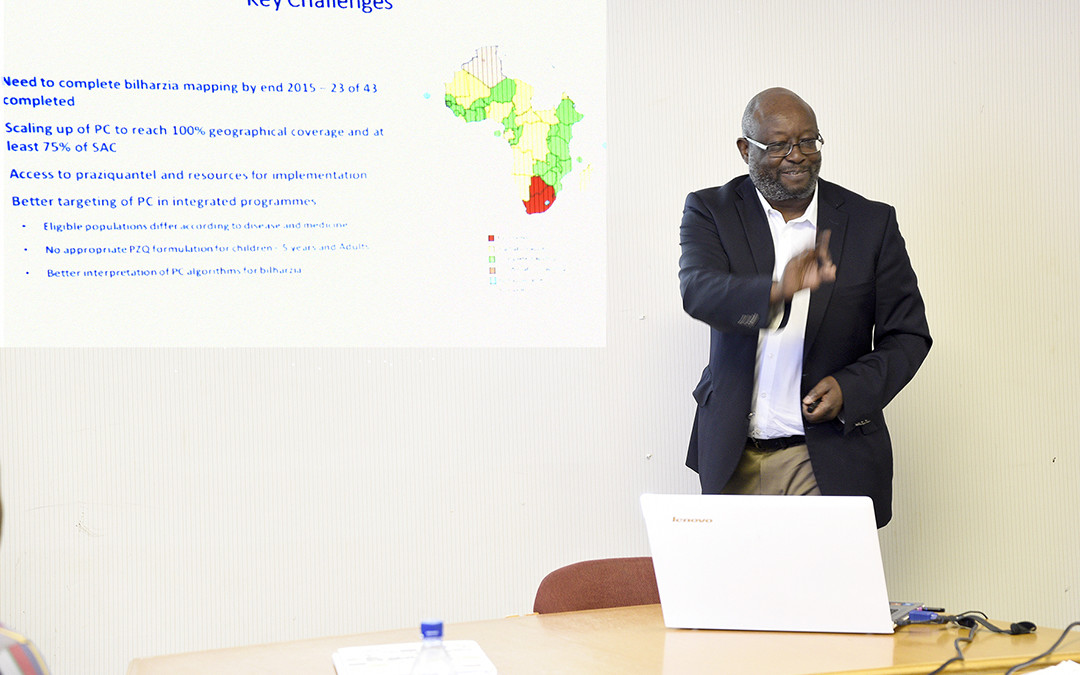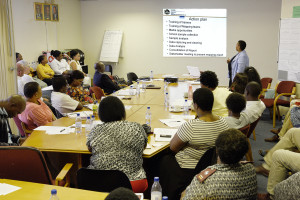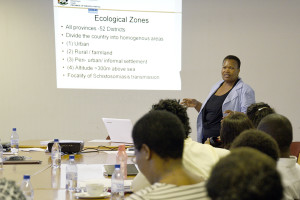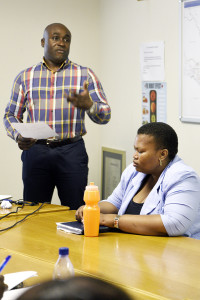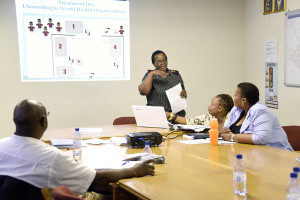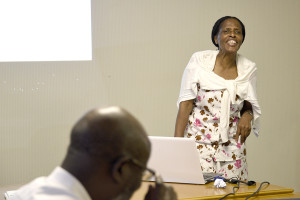Child stunting, anaemia, impaired learning ability and the negative impact on health and socio-economic status may be prevented by correct treatment and Sister Siphumile Mlambo, CDC Ugu, informed us that South Africa is one of the five countries – worldwide – that has yet to map the presence of the worm diseases. In order to curb the devastating health consequences of worms some areas might need mass-treatment. Ugu District has been the first to pilot mass-treatment in some schools the last decade. However many areas in South Africa are unexplored and therefore urine and faeces must be collected in each of South Africa’s 52 districts. This will make it possible to decide on the best treatment strategies for the different areas. Ugu District Department of Health: Deputy District Manager, Sister Thoko Ntuli emphasised the importance of a multi-disciplinary approach to managing urogenital Bilharzia and the soil-transmitted helminths (intestinal worms).
Dr Lester Chitsulo (Geneva/Malawi) who has worked on Female Genital Schistosomiasis and so-called Neglected Tropical Diseases for the World Health Organisation presented the plight of children with schistosomiasis and discussed the necessity for early management of disease. Dr Femi Olowookorun, Ugu District Medical Officer, spoke about the possible intervention points in the wake of the upcoming infant syrup for treatment of the disease. The BRIGHT team (University of KwaZulu-Natal) presented the latest news in research and also gave a practical approach to teenagers in need of health services. A lively discussion ensued, especially as Dr. Patricia Ndhlovu, Imperial College, UK, spoke about the hot spots of infested rivers near some of our local schools.
Sister Siphumile Mlambo
Dr Femi Olowookorun
BRIGHT team, Sister Nombeko Mpofana (below) spoke together with Silindile Gagai, Thulisile Mkhize, Joelyn Haergraves and Nonjabulo Msomi
Dr. Patricia Ndhlovu

